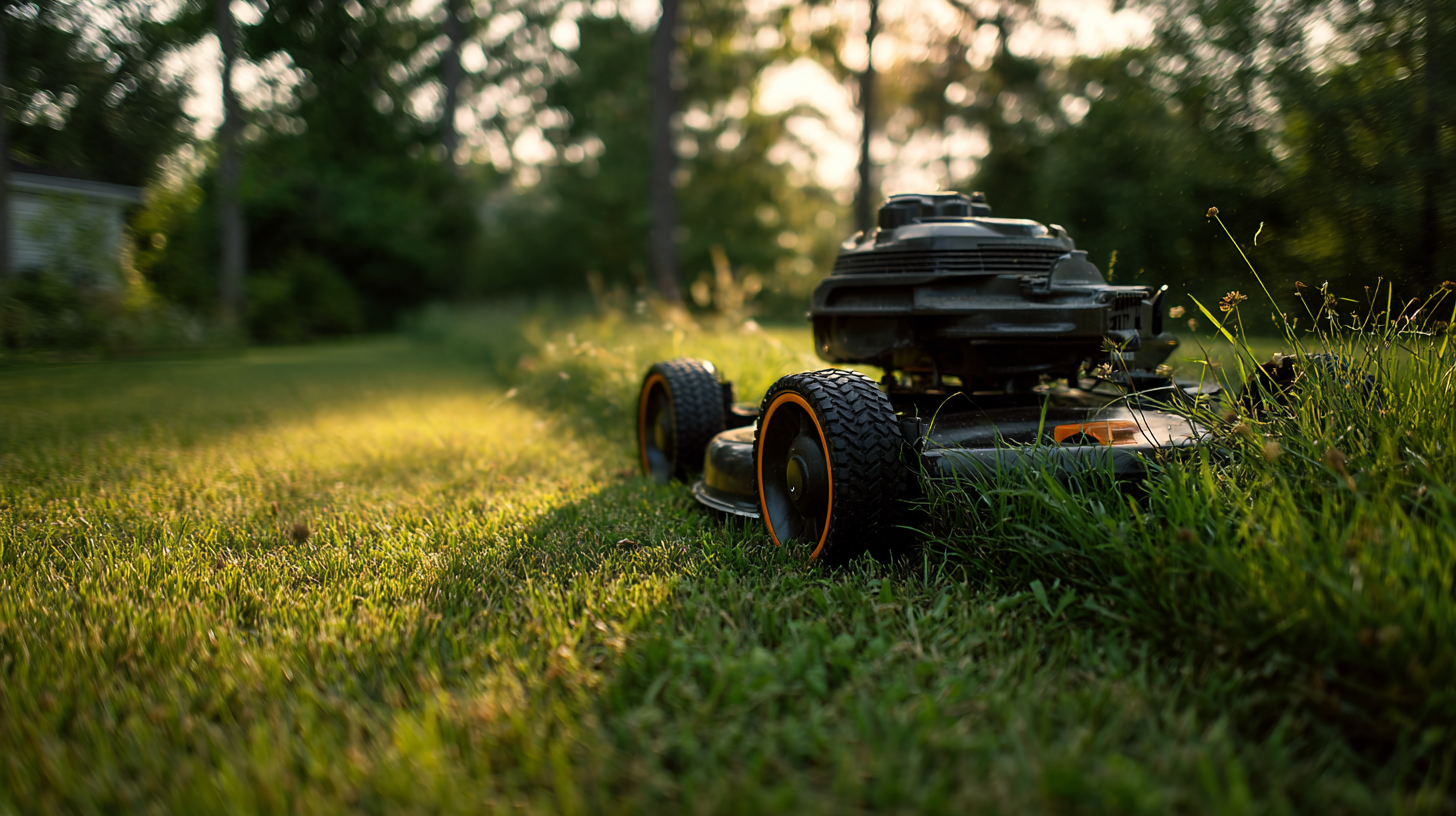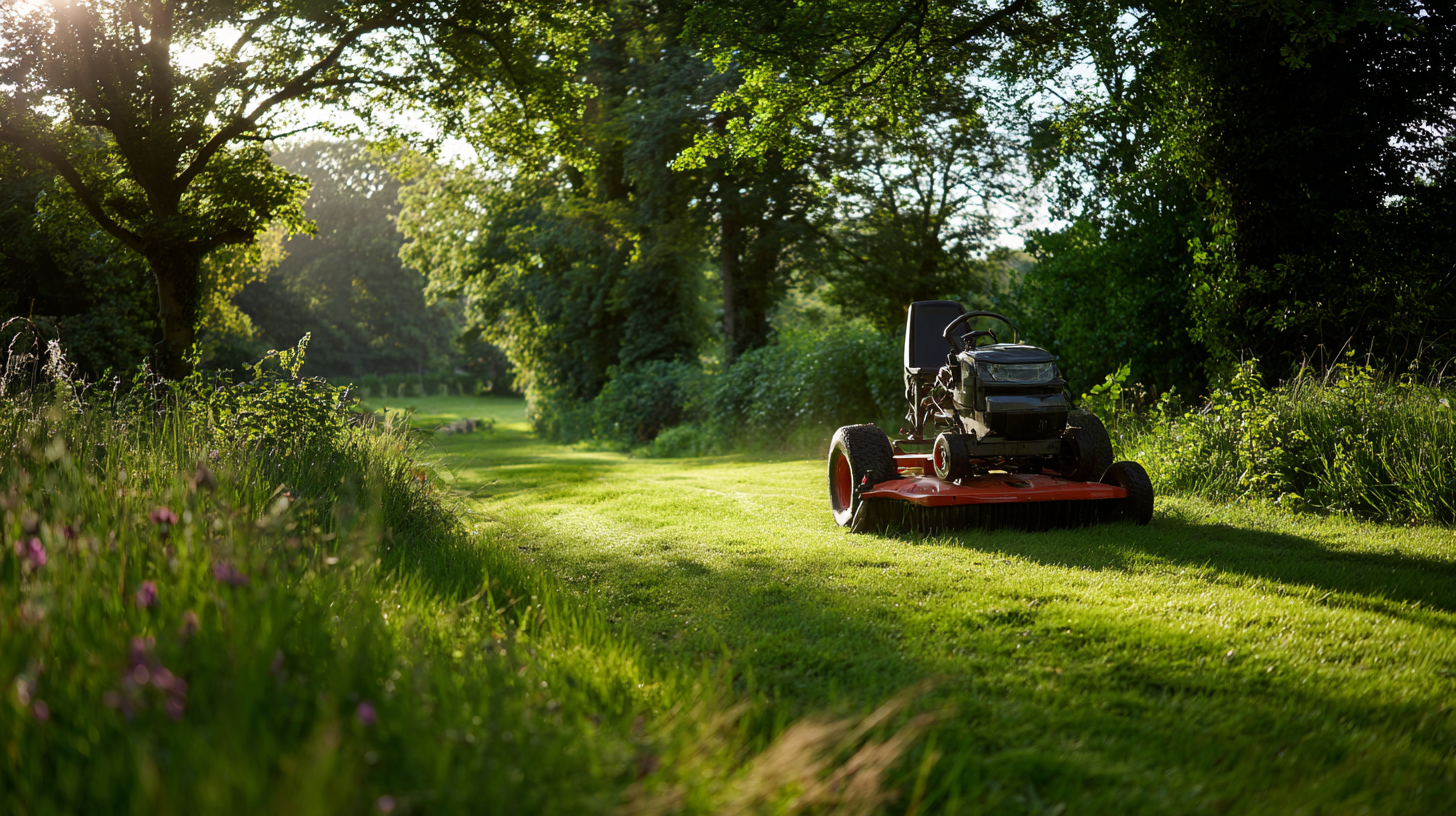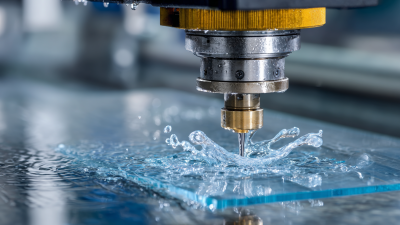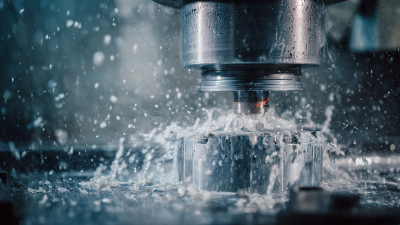The Ultimate Guide to Choosing the Right Disk Mower for Your Lawn Care Needs
When it comes to lawn care, selecting the right equipment can make all the difference in achieving a perfectly manicured yard. Among the various tools available, the disk mower stands out as a versatile and efficient option for handling a range of mowing tasks. This guide aims to equip you with essential information on choosing the right disk mower that best fits your lawn care needs.

Whether you are a homeowner maintaining a modest garden or a professional landscaper managing extensive properties, understanding the features, benefits, and different types of disk mowers will empower you to make an informed decision. From analyzing cutting width and engine power to assessing durability and ease of use, this comprehensive overview will help you navigate the process of selecting the ideal disk mower tailored specifically for your unique requirements.
Dive into our ultimate guide to unlock the secrets to effective lawn maintenance with the right disk mower!
Understanding Different Types of Disk Mowers for Lawn Care
When it comes to maintaining a pristine lawn, choosing the right disk mower is crucial. Understanding the different types of disk mowers available can help you make an informed decision that enhances your lawn care routine. There are primarily two types of disk mowers: the pull-type and the self-propelled models. Pull-type disk mowers are ideal for larger properties and can be attached to tractors, providing an efficient means to cover vast areas quickly. On the other hand, self-propelled disk mowers are perfect for residential use, offering maneuverability and ease of use in tighter spaces.
Tips for selecting the right disk mower include assessing the size of your lawn and considering the terrain you’ll be mowing. For uneven or hilly landscapes, self-propelled models often offer better traction. Additionally, look for features like adjustable cutting heights and easy maintenance options, which can significantly enhance your mowing experience.
Before making a purchase, take into account the type of grass you typically mow. Some mowers excel in cutting thick, overgrown grass, while others are better suited for regular maintenance on well-kept lawns. Be sure to read reviews and consult experts to find a disk mower that aligns with your specific lawn care needs.
Key Features to Consider When Choosing a Disk Mower
When selecting a disk mower for your lawn care needs, understanding the key features is crucial for optimal performance. One of the most important aspects to consider is the cutting width. According to a report by the Equipment Manufacturer Association, mowers with a cutting width ranging from 6 to 8 feet are preferred among professionals for residential lawns, as they offer a balance between efficiency and maneuverability. Wider widths can reduce mowing time significantly, which is an essential factor for maintaining larger properties.
Another vital feature is the mower's blade design and material. High-quality steel blades that are either heat-treated or coated with a durable finish can provide a longer service life and improved cutting performance. A study by Turf Magazine indicated that mowers equipped with advanced blade technology can enhance cutting quality by up to 25%, ensuring a cleaner, healthier lawn. Additionally, look for models that allow for easy blade replacements and adjustments, adding to the mower's overall longevity and ease of use.
Lastly, consider the mower's weight and mobility. Heavier models may offer better stability during operation, but lighter mowers can be easier to maneuver in tight spaces. According to a survey conducted by the Lawn and Landscape Industry, 65% of lawn care professionals prefer mowers under 1,500 pounds for residential use, as they allow for better handling without sacrificing cutting quality. Balancing these features will help you choose the right disk mower that fits your specific lawn care requirements.
The Ultimate Guide to Choosing the Right Disk Mower for Your Lawn Care Needs
| Feature | Description | Importance Level |
|---|---|---|
| Cutting Width | The width of the mower's cutting area, affecting efficiency and time required to mow. | High |
| Blade Type | The design of the blades which influences cutting quality and grass handling. | Medium |
| Weight | The total weight of the disk mower, affecting maneuverability. | Medium |
| Drive Type | How the mower is powered (manual or powered), affecting user effort. | High |
| Height Adjustment | The ability to adjust the height of the cut for different grass types. | High |
| Durability | Construction material and overall build quality affecting lifespan. | High |
| Ease of Maintenance | Frequency and complexity of required maintenance tasks. | Medium |
| Price Range | The cost associated with purchasing the mower, influencing budget considerations. | High |
Evaluating Your Lawn Size and Terrain for the Right Mower
When selecting the ideal disk mower for your lawn care needs, it’s crucial to evaluate the size and terrain of your lawn. A small, flat yard might only require a compact, lightweight mower that can easily maneuver around garden beds and tight corners. In contrast, larger properties with expansive grass areas could benefit from a more robust model, designed to cover more ground efficiently while maintaining cutting quality. Understanding your lawn’s dimensions will help you determine the necessary cutting width and power required for optimal performance.
Terrain also plays a significant role in your decision-making process. If your property features steep slopes or uneven ground, you’ll need a mower that can handle these challenges effectively. Models with enhanced stability and traction will minimize the risk of accidents and ensure a smooth cutting experience. Furthermore, consider mowers equipped with adjustable cutting heights, as they allow you to adapt to varying grass types and conditions, ensuring a healthy lawn regardless of its topography.
By thoughtfully assessing both size and terrain, you can select a disk mower that meets your specific lawn care requirements.
Budgeting for Your Disk Mower Purchase: Costs and Benefits
When budgeting for your disk mower purchase, it's essential to assess both the
initial costs and the
long-term benefits it can provide.
According to a report by the Association of Equipment Manufacturers, investing in a quality disk
mower can yield a return on investment of up to 30%
in terms of time saved and maintenance costs reduced. Prices for disk mowers can vary widely,
often ranging from $1,500 to $5,000 depending on features
and capacity. It's crucial to consider not just the purchase price but also the
operational costs, such as fuel and maintenance.
 Moreover, when you think about the benefits, a disk mower can significantly enhance your lawn
care efficiency. With its ability to cut larger swathes of grass more quickly, users can expect
to decrease their mowing time by about 40%,
compared to traditional mowers. This efficiency allows for more time to focus on other lawn
care tasks or simply enjoying your outdoor space. Therefore, while the upfront cost may seem
hefty, the savings in time and reduced operational costs can make a disk mower a worthy investment
for any lawn care enthusiast.
Moreover, when you think about the benefits, a disk mower can significantly enhance your lawn
care efficiency. With its ability to cut larger swathes of grass more quickly, users can expect
to decrease their mowing time by about 40%,
compared to traditional mowers. This efficiency allows for more time to focus on other lawn
care tasks or simply enjoying your outdoor space. Therefore, while the upfront cost may seem
hefty, the savings in time and reduced operational costs can make a disk mower a worthy investment
for any lawn care enthusiast.
Maintenance Tips for Prolonging the Life of Your Disk Mower
 When investing in a disk mower, proper maintenance is essential for maximizing its lifespan and efficiency. Regularly checking and changing the oil is crucial, as it ensures that the engine remains lubricated and operates smoothly. Neglecting this task can lead to excessive wear and tear, ultimately shortening the life of your mower. Additionally, sharpening the blades frequently will not only improve cutting performance but also reduce strain on the engine, allowing for more efficient operation and a cleaner cut.
When investing in a disk mower, proper maintenance is essential for maximizing its lifespan and efficiency. Regularly checking and changing the oil is crucial, as it ensures that the engine remains lubricated and operates smoothly. Neglecting this task can lead to excessive wear and tear, ultimately shortening the life of your mower. Additionally, sharpening the blades frequently will not only improve cutting performance but also reduce strain on the engine, allowing for more efficient operation and a cleaner cut.
Another important maintenance tip involves inspecting the various components of the disk mower for any signs of wear or damage. This includes belts, gears, and bearings which are vital to the mower's functionality. Keeping these parts in good condition will help avoid unexpected breakdowns during peak mowing seasons. Furthermore, cleaning the mower after each use can prevent grass buildup, which can cause rust and decay over time. Proper storage in a dry area will also protect it from the elements, ensuring your disk mower remains in top condition for many seasons to come.




